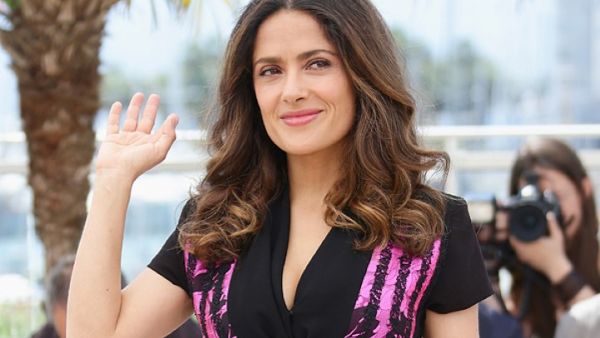All eyes were on Salma Hayek when she made a pilgrimage to Bcharre, Lebanon on Sunday.
The sophisticated brunette visited the Khalil Gibran museum, dedicated to the poet's legacy in his hometown, after the actress made a film about his collection of works.
Salma, 48, dressed up for the occasion in a bright floral top and peplum skirt as she promoted the new animated film The Prophet, which she produced and took a lead role in.
During her visit, the actress dipped her toe into a fountain beside a statue of late writer Gibran and even paid homage to him when she sung the Mexican national anthem outside the museum.
Salma, whose new animated tribute is slated for US release in August 2015, was introduced to politician Sethrida Geagea, who bore a striking resemblance to her.
The Prophet will serve as Salma's fifth time in a producer capacity after films such as Frida and The Maldonado Miracle, as well as producing episodes of Ugly Betty, in which she also played a small part between 2006 and 2007.
The film is an adaptation of Gibran's 1923 collection of 26 prose poetry essays by the Lebanese artist, philosopher and writer.
Salma will lend her voice to the character of Kamila, while Taken actor Liam Neeson will voice Mustafa and John Krasinski is Halim.
The book, which Salma says is 'about the courage to speak up, to believe you are worth being listened to,' has already sold 100m copies worldwide, despite receiving little publicity.
Salma told The Guardian's G2 magazine recently: 'It's not a religious book, it's poetic and philosophical.
'It's a book written by an Arabic man,' she continued. 'Which unites all religions. That itself I think is important.'
Gibran is still widely regarded as one of the world's best selling poets.
The manuscripts, original paintings, furniture, personal belongings and private library were recovered from his New York studio in 1932 to be displayed in the Bsharreh museum of his native town.
Its popularity peaked in the 1930s and again in the 1960s when it became the bible of the counter culture.








